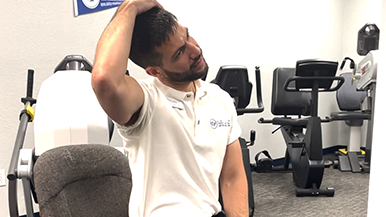Bringing a new life into the world is an exhilarating journey but often comes bundled with many emotions and challenges. For moms—whether new to motherhood or experienced warriors—these joyful moments can quickly become overwhelming periods. Sleep deprivation, hormonal changes, and the constant care for a newborn can leave mothers feeling like time is distorted.
That’s why it’s important to demand time for yourself and your recovery! Take a look at how physical therapy can help with postpartum recovery below.
Postpartum changes a woman’s body substantially—different posture stretched skin, weakened abdominal muscles, increased weight, and added pressure on the spine. While regular movement and exercise aid in hastening the recovery journey, physical therapy is an underutilized yet invaluable resource.
Understanding Postpartum Recovery and Physical Therapy
Navigating the postpartum period can feel like an uphill battle, but physical therapy offers a guiding hand to ease this transition. Here’s what you can expect and how physical therapy can become your beacon of support:
Pain Relief
One of the primary benefits of postpartum physical therapy is its ability to alleviate discomfort in the back, abdomen, and pelvic region. These sessions focus on rectifying or compensating for muscle imbalances arising during pregnancy and the strains incurred during childbirth. Addressing these imbalances through physical therapy significantly reduces tension and tightness, consequently mitigating the onset of pain and discomfort.
Addressing Post-Delivery Complications
Diastasis recti, pubic synthesis separation, and low back or hip pain—are just a few of the common complications evaluated during a postpartum physical therapy session. Understanding and addressing these issues offers a smoother recovery.
Strengthening Core and Pelvic Floor
 The core and pelvic floor muscles undergo substantial changes during pregnancy and childbirth. These muscles are pivotal in maintaining functional posture and stability throughout the postpartum phase. Physical therapy interventions, including tailored stretching, strengthening exercises, and balance training, assist new mothers in regaining strength and stability in these critical muscle groups.
The core and pelvic floor muscles undergo substantial changes during pregnancy and childbirth. These muscles are pivotal in maintaining functional posture and stability throughout the postpartum phase. Physical therapy interventions, including tailored stretching, strengthening exercises, and balance training, assist new mothers in regaining strength and stability in these critical muscle groups.
Personalized Exercise Programs
The tailored exercise programs provided by physical therapists are a game-changer. They’re explicitly designed to address weaknesses and alleviate tightness, aiming to restore strength and flexibility in areas affected by childbirth.
Education on Proper Care
Learning the correct lifting techniques and body mechanics not only safeguards your back but also protects your pelvic floor—a critical aspect often neglected in postpartum care.
Enhancing Range of Motion
After childbirth, many women experience stiffness and reduced mobility in various joints, particularly in the hips and shoulders. Physical therapy interventions aim to alleviate these issues by addressing tightness and facilitating an improved range of motion. These exercises and techniques restore flexibility, allowing for more fluid movement and enhanced daily comfort.
Stress Reduction and Coping Strategies
Beyond physical benefits, regular physical therapy sessions offer valuable mental and emotional support. Therapists equip new mothers with healthy coping strategies to manage the demanding postpartum phase. Relaxation techniques, including deep breathing exercises and mindfulness practices, are integrated into sessions, fostering an environment conducive to rest and recovery, effectively reducing stress, tension, and fatigue.
One-on-one attention and Specialized Care
Each visit to a physical therapist is dedicated entirely to you. This undivided attention ensures comprehensive evaluation and personalized care, offering solace and specialized support during this delicate phase of life.
Postpartum Recovery and the Path to Wellness
With physical therapy support during postpartum recovery, you can start a guided path toward holistic wellness. Every visit invests in your health, nurturing your physical and emotional well-being, ultimately enabling you to care for your loved ones with vigor.
Learn more about how physical therapy can help:
While your baby is so important to your new life that your well-being matters, embracing the support of a physical therapist not only aids in your recovery but empowers you to navigate this new chapter confidently. Take the time to prioritize your health; it’s an investment that yields priceless returns for both you and your family.



